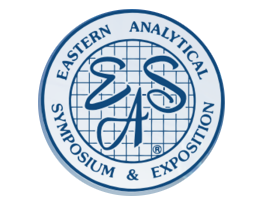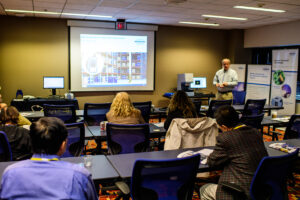One-Day Course
Sunday, November 13, 8:30am – 5:00pm
Dr. Yan Zhang, Bristol-Myers Squibb, Princeton, NJ
Dr. Jun Qu, SUNY-Buffalo, Buffalo, NY
Dr. Hao Jiang, Bristol-Myers Squibb, Princeton, NJ
Dr. Jianing Zeng, Bristol-Myers Squibb, Princeton, NJ (organizer)
Ms. Faye Vazvaei, Roche Innovation Center New York, New York, NY (organizer)
COURSE DESCRIPTION
For years, ligand binding assays (LBAs) have been the gold standard for the analysis of biologics and protein biomarkers. In recent years, liquid chromatography-tandem mass spectrometry (LC-MS/MS) has emerged as an alternative and/or complementary technique to LBAs in providing the underlying data needed for pharmacokinetics evaluation of protein therapeutics pharmacokinetics and disposition. Such assays have been successfully implemented for analysis of protein biomarkers as well.
This short course is designed to provide the attendee with a fundamental understanding of this emerging technology, not only its advantages, but also the challenges it faces. The course will include topics to provide both the novice and adept practitioner a thorough understanding of assay format selection, including in depth knowledge of sample preparation and clean up strategies, and chemical and immune-affinity approaches. Furthermore, an overview of the protein digestion strategies is provided as is selection of surrogate peptides. The course will also offer fundamentals of liquid chromatography-mass spectrometry method development as they apply to analysis of biologics. Moreover, illustrated case studies are provided to offer the attendees real-world examples when using this technique. Finally, the course will cover some of the validation considerations when this technique is used for analyzing samples from regulated studies.
WHO SHOULD ATTEND
This one-day course will benefit bioanalytical chemists and other scientists, supervisors and lab managers in the field of bioanalytical chemistry who are interested to learn quantitative analysis of proteins and peptides by LC-MS/MS utilizing both chemical and hybrid (immune-affinity) sample preparation strategies.
TOPICS
1. Introduction to Therapeutic Proteins Bioanalysis: Complexity and Assay Format Selection
* Overview of biologics and biomarker in drug development
* Introduction of protein bioanalysis and challenges
* Discuss available assay formats for protein bioanalysis
* Discuss strategies on selecting appropriate assay format for biologics bioanalysis support in drug discovery and development
2. Fundamental Liquid Chromatography-Mass Spectrometry and its Application in Protein Bioanalysis
* Fundamental liquid chromatography-mass spectrometry
* Technical challenges in protein analysis
* Chromatographic consideration for protein analysis
* Mass-spectrometry consideration for protein analysis
* Bottom-up vs. top-down applications for protein analysis
* Micro and nano LC application in protein analysis
* Intact protein vs. surrogate peptide quantifications
* Digestion consideration for protein quantification
3. Sample Preparation Strategies for Analysis of Proteins and Peptides
* Overview sample preparation strategies for protein analysis
* Protein extraction, clean-up and digestion
* Achieving of high selectivity, sensitivity and quantitative accuracy
* Immunocapture technologies application in protein quantification
4. Monoclonal antibody analysis with LC-MS technology
* Universal assay vs analyte specific assay
* Pegylated Protein analysis
* Small protein analysis
* ADC analysis
* Biomarker analysis
5. Validation Considerations
* Overview validation consideration for LC-MS/MS protein bioanalysis to support regulated studies
ABOUT THE INSTRUCTORS/ORGANIZERS
Dr. Yan Zhang (Instructor) is an Associate Director from Bioanalytical Science-Biologics group of Bristol-Myers Squibb (BMS), leading a group of scientists on developing bioanalytical immunoassays and employing up-to-date technologies for the assessment of PK, immunogenicity, and biomarkers in support of BMS discovery biologics programs. Prior to this role, she managed assay development and sample analysis projects in support of clinical biomarker studies. Before joining BMS, Dr. Zhang worked for GlaxoSmithKline where she managed and implemented clinical biomarker and assay technology development projects. She earned her Ph.D. degree in Cellular and Molecular Biology at the New York University and had her postdoctoral training at Howard Hughes Institute in University of Pennsylvania.
Dr. Jun Qu (Instructor) is an Associate Professor in the Department of Pharmaceutical Sciences of SUNY-Buffalo, and the chief scientist in Chief Scientist in Bioanalysis at the Center of Excellence in Bioinformatics and Life Sciences in Buffalo, NY. Dr. Qu primarily develops and applies LC/MS based strategies for research of Proteomics and Pharmaceutical Analysis. Dr. Qu’s research programs involve: i) Targeted quantification of therapeutic and regulatory proteins using novel sample preparation methods coupled to highly-sensitive nano-LC/SRM-based approaches; ii) high-resolution and large-scale expression profiling of pharmaceutical and pathological proteomes (e.g. for cardiovascular diseases, colon cancer and infectious diseases) for the discovery of disease/therapeutic biomarkers using gel-free LC/MS methods; iii) Sensitive identification, localization and quantification of post-translational modifications in complex proteomes. A number of key analytical advances have been developed in his laboratory, which greatly enhance the proteomic coverage, sensitivity and throughput for protein analysis and proteomic research.
Dr. Hao Jiang (Instructor) is currently a Senior Research Investigator II at Bristol-Myers Squibb Company (BMS Co.). He completed his PhD in Clinical Pharmacology at Peking Union Medical College in Beijing and continued his postdoc training in Pharmacology and Toxicology at University of Pennsylvania. In 2007, he joined BMS at the department of Analytical and Bioanalytical Development where he has led a group to develop many sensitive and accurate LC-MS assays for drug candidates and biomarkers in biological matrices. His work has supported PK/PD evaluation in many drug development programs such as immuno-oncology, virology, cardiovascular, and neoscience. In recent several years, he has focused on LC-MS quantitation of proteins and peptides in biological matrices for accessing pharmacokinetics, biomarker, and immunogenicity in biotherapeutic development. Dr. Jiang is a pioneer in absolute quantitation of protein therapeutics and anti-drug antibodies in regulated bioanalysis using LC-MS. He has 40 research publications in the peer-reviewed journals and 37 conference presentations, and he is an active member of American Association of Pharmaceutical Scientists (AAPS).
Ms. Faye Vazvaei (Organizer) is a Senior Principal Scientist in the department of DMPK and Bioanalytical R&D at Roche Innovation center New York. She has over 20 years of experience in the regulated bioanalytical field spanning both pharma and contract research organizations. Faye is currently the chair of American Association of Pharmaceutical Scientists Bioanalytical Focus Group (BFG) and has been actively fostering quantitative analysis of proteins by mass spectrometry. As the BFG steering committee member Faye has organized and chairs the BFG Mass Spec Protein Bioanlysis committee (MSPBC). Faye earned her master’s degree in Biotechnology from John’s Hopkins University, Baltimore, MD and her bachelor’s degree in chemical engineering from Sharif University of Technology, Tehran.
Dr. Jianing Zeng (Organizer) is an Associate Director of Bioanalytical Sciences Department at Bristol-Myers Squibb Company in Princeton, USA. Prior to that, she worked for the Liposome Company and Roche Biomedical Laboratories. Dr. Zeng received her BS in chemistry from Sichuan University, and MS and Ph.D. in chemistry from the Chinese Academy of Sciences under the direction of Professor Yu-Fen Zhao. Dr. Zeng has been in bioanalytical field supporting drug development for more than 20 years. She is currently leading the efforts of Mass Spectrometry–based PK assay development and validation for large molecules in support of regulatory studies in BMS. She is an active participant in AAPS Bioanalysis Focus Group by contributing to Protein Bioanalysis by Mass Spec Committee.

